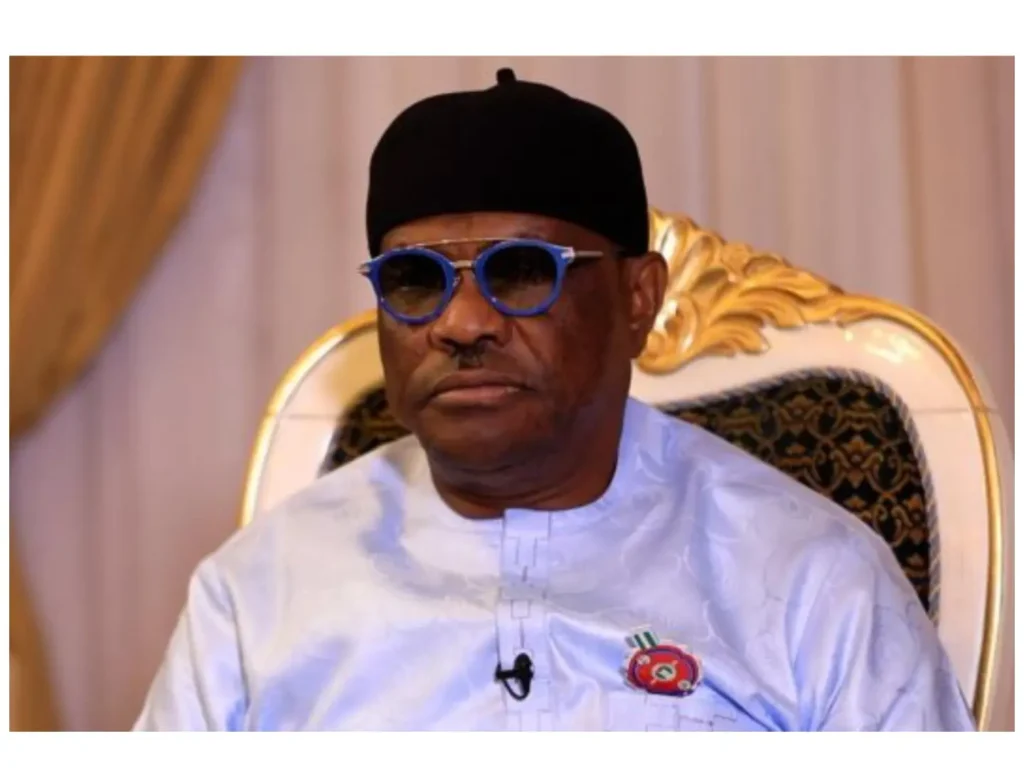Some people blame FCT Minister Nyesom Wike every time they lose a court case. They believe that because Wike builds houses for judges, he is the reason for their loss. One of those people is Hassan Husaini, who wrote an article accusing Wike of damaging the law and democracy. But the truth is, Hassan is just repeating what others who dislike Wike always say.
Hassan might not be well known, but he seems to speak for people who are always against Wike. It’s almost as if they want judges to live in poor housing with no security, rather than getting proper government support. That’s why his article needs to be corrected.
Even though his article is full of false claims, it’s important to respond so people are not misled by these lies. Ignoring such statements would allow them to spread unchecked.
Wike actually did a lot to improve legal education in Nigeria. When others said no to a Law School in Rivers State, Wike made sure it was built in Port Harcourt. He also helped improve the Law School campus in Bayelsa State, showing his commitment to legal training.
Wike’s involvement began when he attended a law event in Abuja and saw how poorly maintained the Law School there was. He offered to help, but the Director General advised him to assist the Bayelsa campus instead, because its condition was worse. Wike accepted and supported it immediately.
Under his leadership, Rivers State built hostels for 900 students and an auditorium for 1,500 people in Bayelsa. He also went further by building a brand new Law School campus in Port Harcourt.
It’s wrong to say that only judges’ children or Wike’s people are using these facilities. These schools are open to all students. His work was not done to benefit any special group.
Wike also continued supporting legal institutions by starting the construction of 10 staff quarters for the Abuja Law School and donating vehicles to help the school function better.
Critics like Hassan think Wike is doing all this to get on the judiciary’s good side. But how does building infrastructure for schools translate into controlling judges or court decisions?
In Abuja, Wike is also building courtrooms and official houses for judges. These homes are not gifts—they are owned by the government and only used by judges while they serve in the FCT. Claiming this is a form of bribery is unfair and misleading.
Appointing judges and approving judiciary funds is the job of the President and National Assembly. Just because they carry out their duties doesn’t mean they are trying to control the courts. The same logic should apply to Wike.
When security agents once tried to raid the house of Justice Mary Odili, Wike came quickly to stop the incident. He believed that a senior judge like her deserved respect and proper legal process. Critics twisted that action too, saying Wike only did it to win favor with the courts.
In reality, Wike did what any leader should do—protect a high-ranking judge from public embarrassment. It wasn’t about politics, it was about doing what’s right.
In the United States, former President William Howard Taft later became Chief Justice. He helped propose and build the Supreme Court building through his friend, yet nobody said he was trying to influence judges. Today, that building is a respected national monument.
In America, judges are picked based on political views. Some are conservative and some are liberal, depending on the President who appointed them. But even with this, Americans don’t accuse their leaders of trying to control the courts.
In Nigeria, however, people who lose cases blame everything but themselves. They don’t consider that maybe their case wasn’t strong enough. Instead, they blame the judges and even drag Wike into it for simply doing his job.
Despite all these attacks, Wike stays focused on his work. He doesn’t seem to care about the noise. What matters to him is doing his duty well, and even his strongest critics can’t deny that he is delivering results.
This blog post is based on a commentary written by Abdullahi Usman, a public affairs analyst from Kano.







